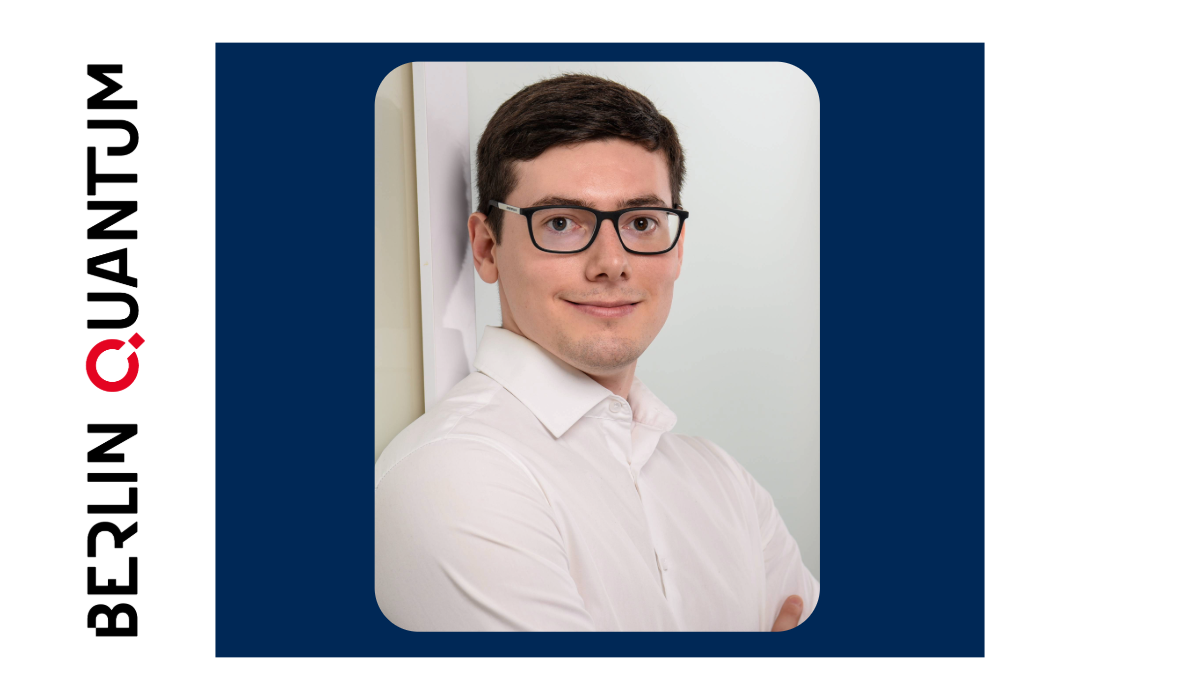In this interview, Lorenz Wanckel, a researcher at the Institute for Physics and Astronomy at the Technical University of Berlin, discusses his work on driven-dissipative quantum state preparation. He shares what drew him to theoretical quantum physics, the advantages of conducting research in Berlin, and how initiatives like BERLIN QUANTUM support his academic journey. Dive into his perspective on collaboration, topological qubits, and the vibrant scientific life in Berlin.
What inspired you to pursue a career in quantum physics?
Among the many fields in physics, quantum theory—and particularly theoretical quantum physics—stood out to me early on as the most intellectually stimulating. A key moment was a university lecture on quantum transport in open systems, which introduced me to the richness and complexity of non-equilibrium quantum dynamics. The mathematical and conceptual challenges in this area continue to fascinate me. What draws me to theoretical quantum physics is not only the elegance of its structures but also the depth of questions it allows us to explore.
Why did you choose to conduct your research in Berlin?
Berlin offers a highly active and well-connected quantum physics landscape. My current position was made possible through funding provided by BERLIN QUANTUM, embedded in a group with which I had already worked successfully during my earlier studies. This continuity, combined with the city's excellent research infrastructure and strong working relationships, made Berlin the ideal choice for pursuing my academic goals.
What advantages does Berlin offer for quantum physics research compared to other cities or countries?
Berlin combines a dense network of universities and research institutions with an international, interdisciplinary environment. The city's strong focus on quantum science, supported by initiatives like BERLIN QUANTUM, fosters collaboration and visibility. This creates unique opportunities for exchange, joint projects, and access to cutting-edge research facilities, making Berlin a leading hub for quantum physics.
Can you tell us about a current project or experiment you are working on?
My research focuses on driven-dissipative quantum state preparation. Currently, I am working on model systems of atoms in optical lattices and developing numerical algorithms to address the challenges of larger, more complex systems. The long-term goal is to theoretically prepare and explore strongly correlated many-body states, such as topological phases like fractional Chern insulators, and to understand how they can be stabilized in open, periodically driven systems.
How does BERLIN QUANTUM and the Berlin research landscape support your work, and which resources are particularly helpful?
BERLIN QUANTUM provides essential funding for my position and facilitates networking and collaboration. The Berlin School of Optical Sciences and Quantum Technologies, partially funded by BERLIN QUANTUM, offers specialized lectures and seminars that are highly beneficial for young researchers. Additionally, the regular BERLIN QUANTUM BBQ events provide a relaxed setting for informal exchange, fostering connections not only within academia but also with industry professionals and startups.
What role does collaboration with other scientists and institutions in Berlin play in your research?
Collaboration is an integral part of the research ecosystem in Berlin. Within my group, collaborations are focused on theoretical projects. I am looking forward to expanding this further, especially through collaborations with experimental groups, to complement theoretical insights with experimental collaboration.
How does living in Berlin influence your personal and professional development?
Berlin offers a rare combination of scientific density and urban diversity. For me, the city provides not only access to a vibrant academic community but also opportunities to explore cultural and recreational activities. This balance helps me maintain focus and resilience throughout the research process, making Berlin an inspiring place to live and work.
In your opinion, what are the most exciting developments or trends in quantum physics that we can expect in the coming years?
Topological qubits are among the most promising candidates for fault-tolerant quantum computing, utilizing the inherent stability of topological states to reduce errors in quantum operations.
What advice would you give to young scientists who aspire to a career in quantum physics and might consider coming to Berlin?
My advice is to not get discouraged by challenges. Quantum physics is a field that demands persistence, but the opportunity to deepen our understanding of such a fascinating area of science is incredibly rewarding. With Berlin's vibrant quantum community, you are likely to find a supportive research group that aligns with your scientific interests. Be bold, stay curious, and take full advantage of the opportunities Berlin has to offer—it’s a city where science and innovation thrive!

